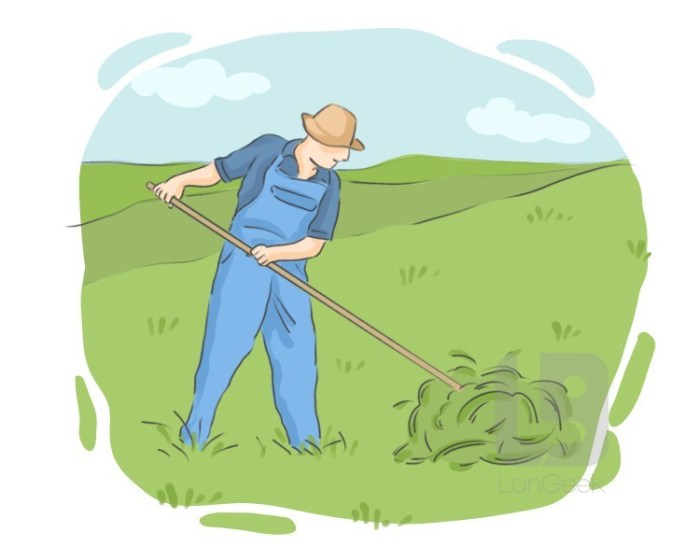Antagonist that actually means farmhand – In the realm of literature and language, the term “antagonist” typically evokes images of formidable adversaries. However, surprisingly, this word holds a dual meaning, encompassing not only the role of an opponent but also that of a humble farmhand. This intriguing semantic shift, from antagonist to farmhand, has left an enduring mark on language and storytelling, enriching both fields in unexpected ways.
Delving into the etymological roots of “antagonist,” we uncover its origins in ancient Greek, where it signified a competitor or opponent in a contest or drama. Over time, the term evolved to encompass a broader range of adversaries, including those encountered in literary works and real-life situations.
Concurrently, the word “farmhand” emerged in agrarian societies, denoting an individual employed to assist with agricultural tasks.
Lexical Definitions

In the realm of literature and drama, “antagonist” carries the literal meaning of an adversary or opposing force that creates conflict and drives the narrative forward. On the other hand, the term “farmhand” refers to an individual employed in an agricultural setting, responsible for performing various tasks related to the cultivation and maintenance of crops and livestock.
Etymology and Historical Context

The term “antagonist” originates from the Greek word “antagonistes,” meaning “opponent” or “competitor.” Its usage in literary and dramatic contexts can be traced back to ancient Greek theater, where it referred to the character or force that opposed the protagonist.
In contrast, the term “farmhand” emerged in the 19th century, reflecting the growing importance of agriculture and the need for specialized labor in rural areas.
Semantic Shift and Cultural Evolution
The semantic shift from “antagonist” to “farmhand” occurred gradually over time. As agricultural societies became more complex, the role of the farmhand evolved beyond mere physical labor to include responsibilities such as managing livestock, operating machinery, and overseeing crop production.
This expanded scope of duties necessitated a broader understanding of the term “antagonist,” which came to encompass both the traditional adversarial role in literature and the practical role in agriculture.
Examples and Case Studies: Antagonist That Actually Means Farmhand
In William Faulkner’s novel “The Sound and the Fury,” the character of Benjy Compson serves as both an antagonist to the protagonist, Quentin Compson, and a farmhand on the family’s plantation. Another example is found in John Steinbeck’s novel “The Grapes of Wrath,” where the protagonist, Tom Joad, is portrayed as an antagonist to the oppressive forces of society while also working as a farmhand to support his family.
Implications for Language and Literature
The dual meaning of “antagonist” enriches language and storytelling by allowing for multiple interpretations and perspectives. In literary analysis, the ambiguity of the term challenges readers to consider the complexities of character and conflict, as well as the social and cultural contexts in which they operate.
Furthermore, it provides opportunities for authors to explore themes of opposition, power dynamics, and the interplay between personal and societal struggles.
Cross-Cultural Perspectives

The concept of “antagonist as farmhand” varies across different cultures and languages. In some cultures, such as in traditional Chinese literature, the antagonist is often depicted as a powerful and formidable force that poses a significant threat to the protagonist.
In contrast, in certain indigenous cultures, the antagonist may represent a more balanced and harmonious relationship with nature and the environment, reflecting a different worldview and value system.
FAQ Insights
What is the literal meaning of “antagonist” in the context of literature and drama?
An antagonist is a character or force that opposes the protagonist, creating conflict and driving the plot forward.
How did the term “farmhand” emerge, and what is its significance?
The term “farmhand” emerged in agrarian societies to describe an individual employed to assist with agricultural tasks, playing a crucial role in supporting farming operations.